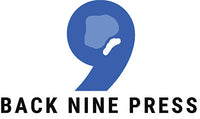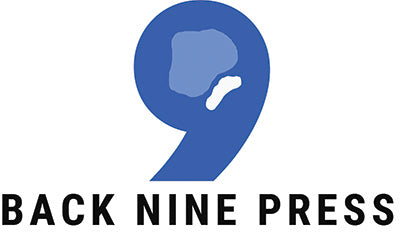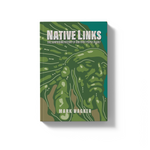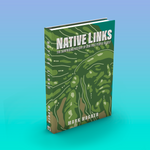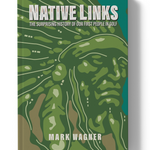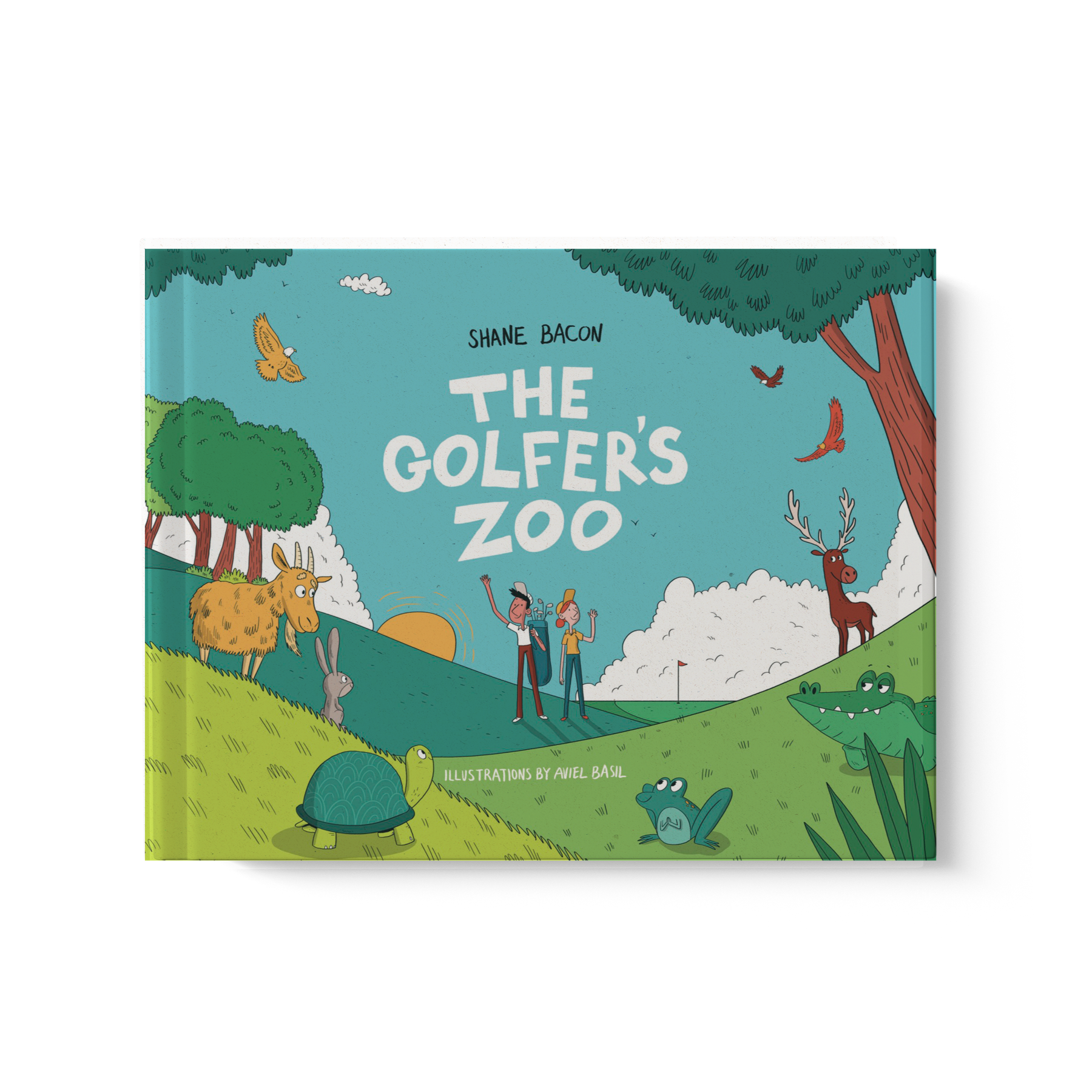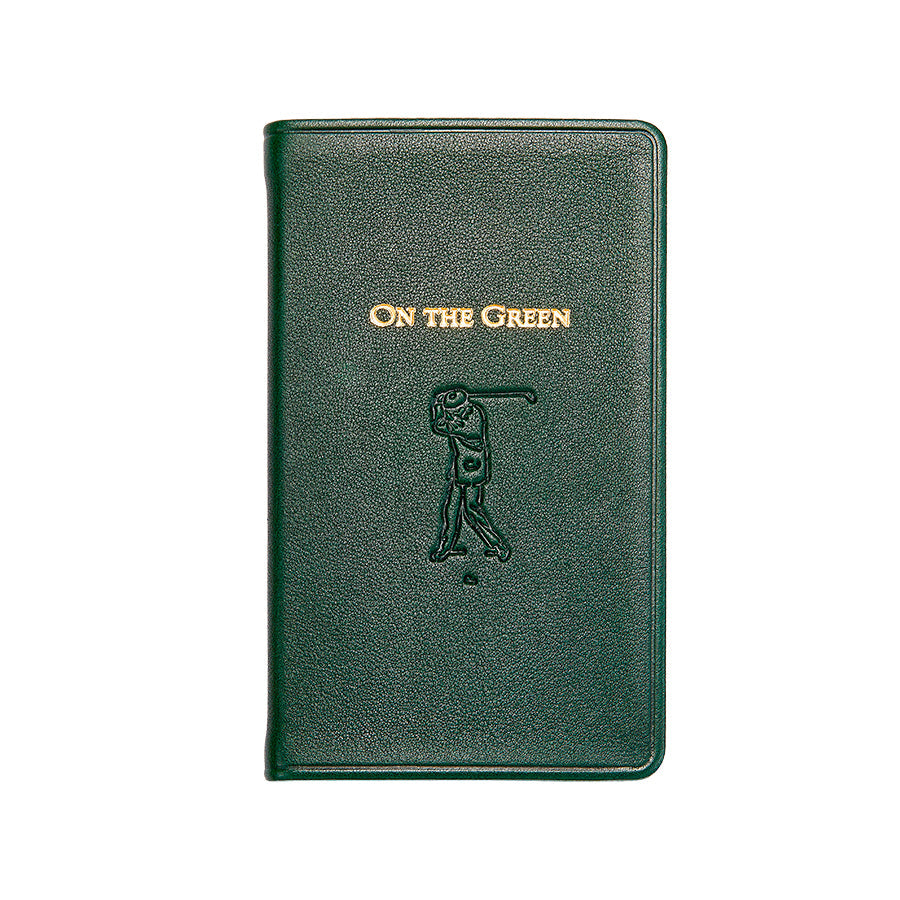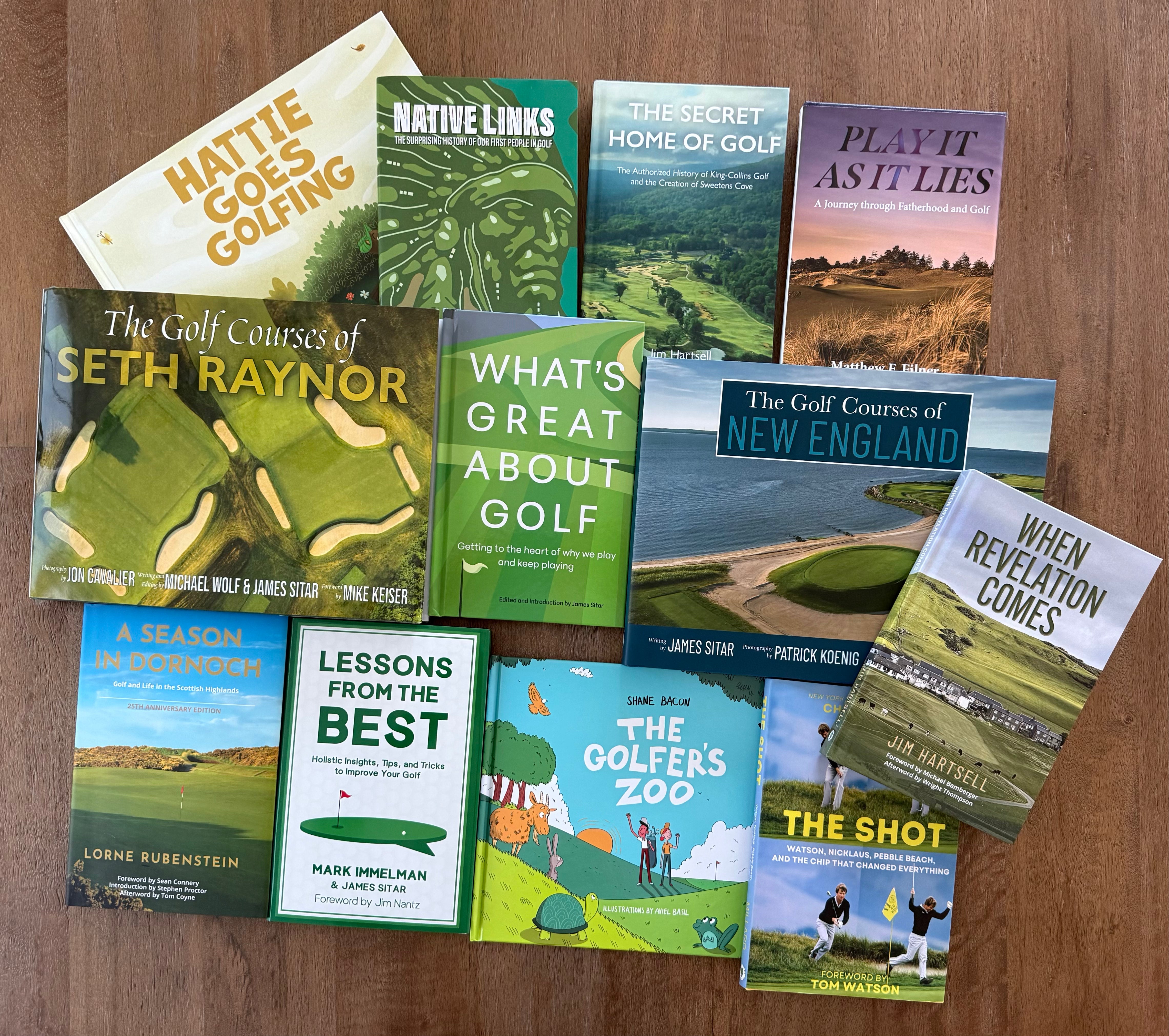A FINALIST FOR THE USGA'S HERBERT WIND AWARD
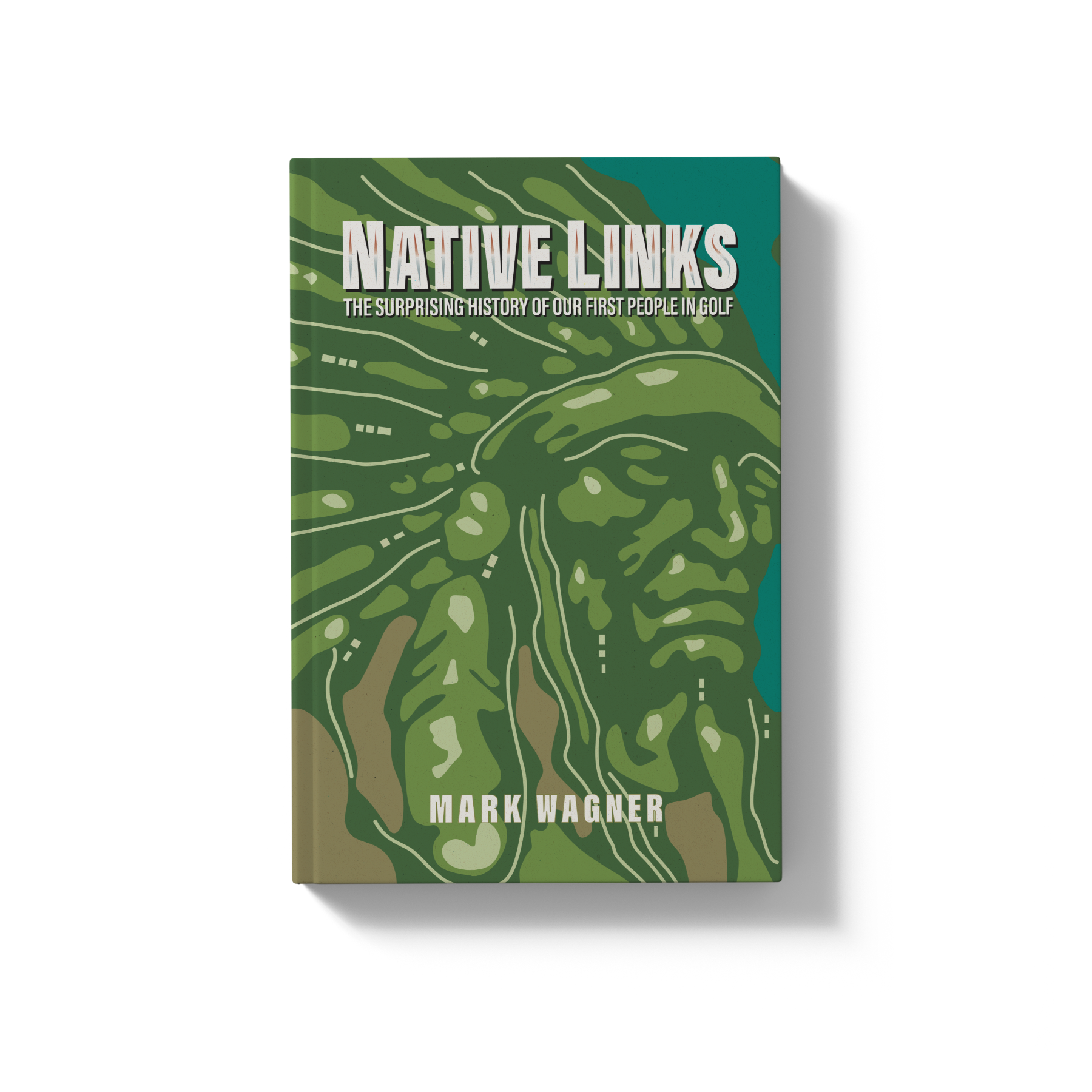
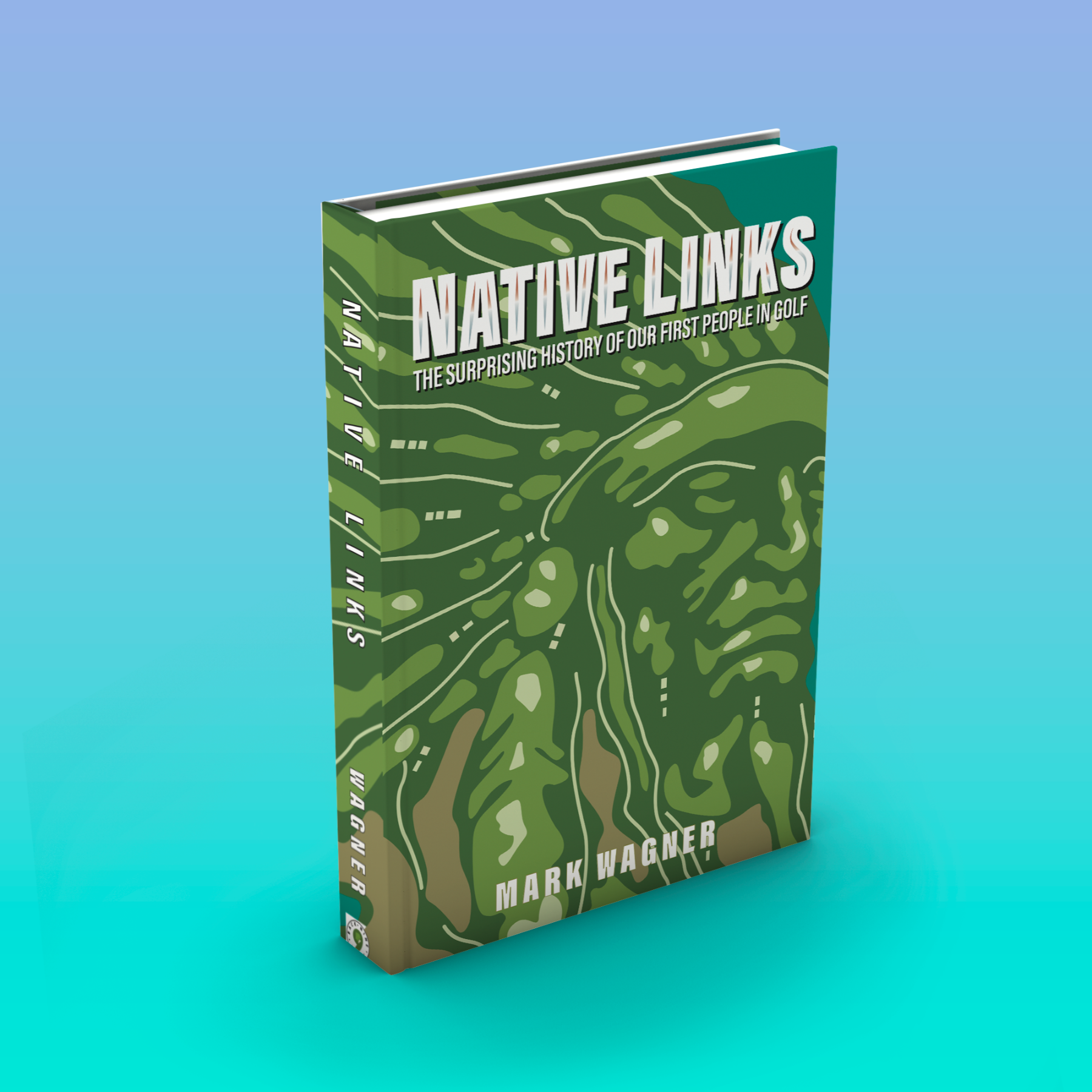
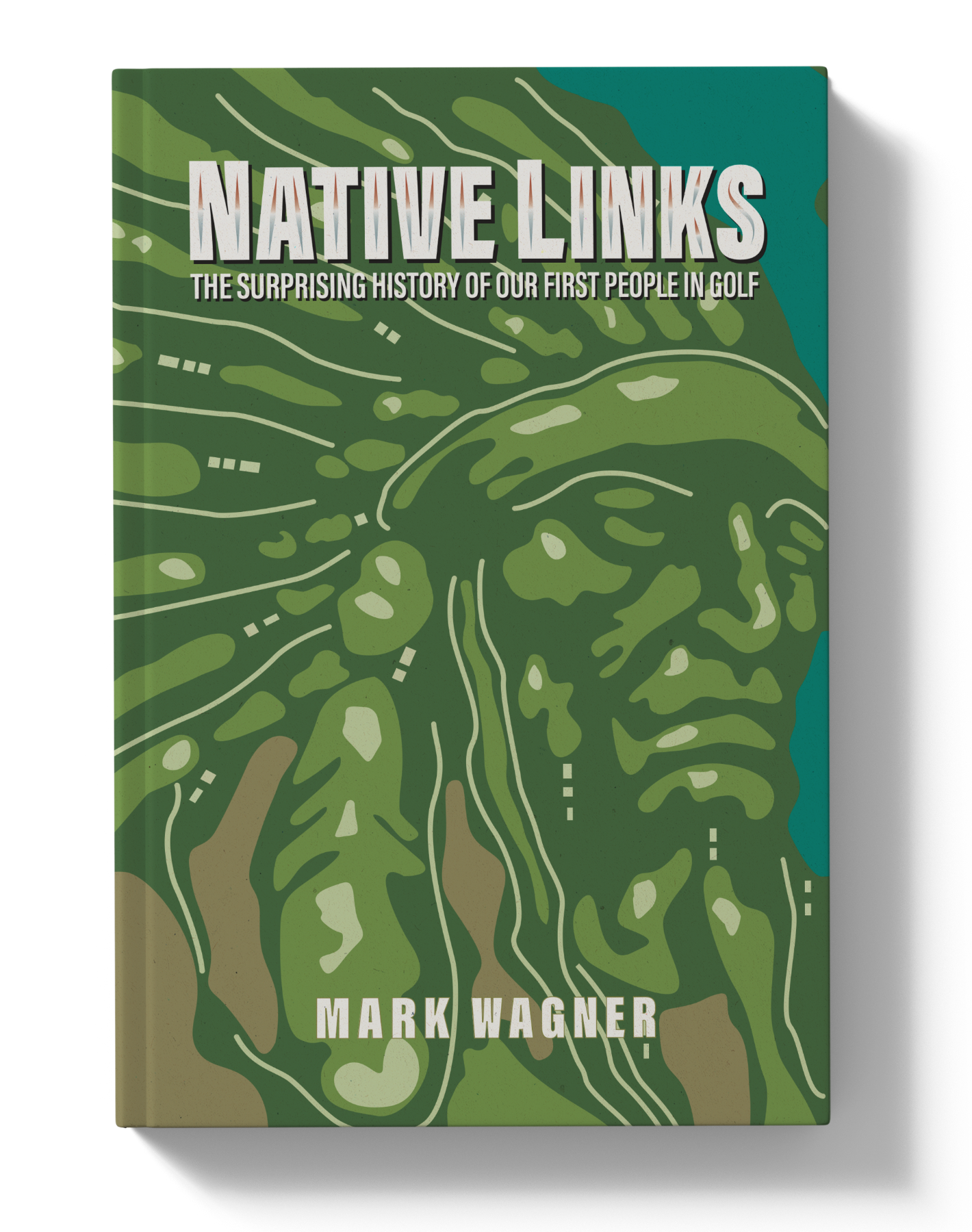
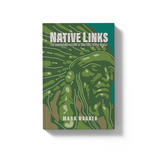
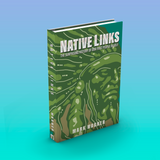
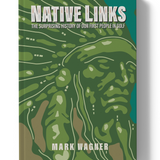
Native Links
The Surprising History of our First People in Golf
Mark Wagner
- Hardcover, with dust jacket
- Cover artwork by Cal Nez
- 288 pages
- A full guide to Native-owned courses
Free 20 Day Returns
Native Links
BOOK DESCRIPTION
Native Links: The Surprising History of Our First People in Golf is an entertaining and insightful narrative that makes the case that, as with the DNA of the country's history, Indigenous history is a leading strand and that is true for golf as well.
This book gathers gripping stories and long-lasting oral histories about our First People. The story begins with Oscar Smith Bunn, A Shinnecock Montauk Native who played in the 1896 and 1899 U.S. Opens. Through Orville Moody's triumph in the 69th U.S. Open, to a new generation of players that includes Notah Begay lll and Gabby Lemieux, Native Links makes an engaging case that you cannot tell the story of golf in this country without including our First People.
And, while many in the golf industry are in a ‘hold’ pattern, even after the surge in outdoor activity during covid, according to Golfweek, “there is one group of builders as bullish as ever on course construction: Native Americans.” With Fee to Trust programs, in successful advocacy, litigation, and lawsuits, with #Land Back, with the revenues from gaming, many tribes have built museums, archives, government centers and—surprise—golf courses. The result is a new generation who harken back to a long history of players and teachers for whom the ancient stick-and-ball game has been another way of finding home.
Finding the elders or those who knew the elders, and meeting a new generation of Native golfers, the author writes, “I would be smudged, taken for a rat, taught (Arnold Palmer’s) perfect grip, and lose matches to Rod Curl and Steve McDonald among others. Still, all I wanted to do was find a home in these shared stories.” This history is indispensable for all who want to know the whole story.
The interplay between Native American and golf history is profound. Mark Wagner's book brings forward many great examples of this lesser known history. The book links these ideas together and offers a compelling narrative about Native American's importance in golf.
One of those "How did I not know this?" books that goes right into the Xmas stocking of every golfer I know. Fantastic history and what a story teller Wagner is.
A wonderful book!
I give this book, Native Links, my very highest rating. It explores the under-reported story Native Americans and golf, and how Native Americans patiently and carefully (but relentlessly) integrated a sport that didn’t allow many of the top Native golfers to even play. It is a historical book, but it’s never dry or dusty; the writing tone is that of popular journalism: intriguing, full of highly personal stories, and — at the end of the day — downright fascinating.
I found this book easy to read as a novice golfer. Each chapter is a well written essay that offers an interesting look into many untold stories about Native Americans and their connection to golf, to the land and this fascinating and surprising history. This seems to be the the first, comprehensive history on this subject and Wagner has gathered gripping stories and oral histories that make me want to know more.
ADVANCED PRAISE FOR Native Links
"Mark Wagner, First Runner Up in the Coyne Prize, has uncovered a little known history of Native Americans and the game we all love. His work is an important and insightful contribution to golf and its literature. Highly recommended for anyone with a curiosity about golf and its history."
—Tom Coyne
New York Times Bestselling Author of A Course Called Scotland and many others
"I am honored to be a part of this book. Growing up on the Pueblo of Santa Ana New Mexico, I started the game of golf around the age of 8 years old. It was a unique opportunity for the summer recreation program to do 3 days of golf at Santa Ana Golf Club. It was then that learning this new game I found silence and the best part being outdoors. During my high school years I started taking lessons and spending all my days in summers at the course, knowing every pro and staff it was truly home. This was then I wanted to start my career in golf. I have had many mentors through this journey, once I received my PGA in March 2012, I took the path of golf instruction. My goal has been growing the game in Native Country, working at Native owned courses in New Mexico, Arizona, and New York it has been my point to get Native American youth involved in the world of golf. With my platform that the PGA of America and the Nike N7 Fund has provided me, I am truly living my dream in growing the game of golf in Native Country."
—Jason Montoya
PGA Teaching Professional, Player Development, Santa Ana Golf Club
“I had the good fortune of participating in the Great American Indian Shootouts, organized by Tom Lovell, which were turning points in raising funds for Native American youth in academic and vocational training. Shepherded by American Indian Services, those funds have provided thousands of scholarships. The Forever Young Foundation continues this work in many areas, though we know there is more work to be done. Mark Wagner’s history of Native Americans in golf, including his research on the Great American Indian Shootout, is a step in the direction of healing and hope."
—Steve Young
Hall-of-fame quarterback and Superbowl champion, founder of the Forever Young Foundation
"Mark Wagner’s book Native Links is a well researched history of Native Lands upon which golf layouts took shape from the magnificent Shinnecock Hills of Long Island, New York, to the Cochiti tribal lands at the headwaters of the Rio Grande in New Mexico. Native Americans have revered their lands and played their sports thereupon, and they took up the European sport of golf on their lands. Mark is a great story teller about many Native Americans’ competitive successes. Mark’s book is rich with new details and insights into the vast contribution to American golf by Native Americans. His clear writing is a joy to read and captivating. You will learn new golf stories which will energize you to explore Native Links from coast to coast. Be sure to pray over your putts and the Native Spirit will assist you, too. Enjoy!"
—Robert Trent Jones, Jr.
"Through Native Links, Wagner expands readers’ historical context for golf in the United States. Vignettes capture stories spanning more than two centuries, stretching from Southampton to Redding, Calif. His thoughtful exploration of Indigenous experiences within golf history reveals the inescapable intersection between sports, culture, race, use of natural resources, recreation and politics. Communion with the land, connection, and complexity serve as themes, while Wagner’s many interviews elevate voices that have long deserved a platform and shed light on communities actively creating new pathways for opportunity in the game."
—Victoria Nenno
Senior Historian, USGA Golf Museum and Library
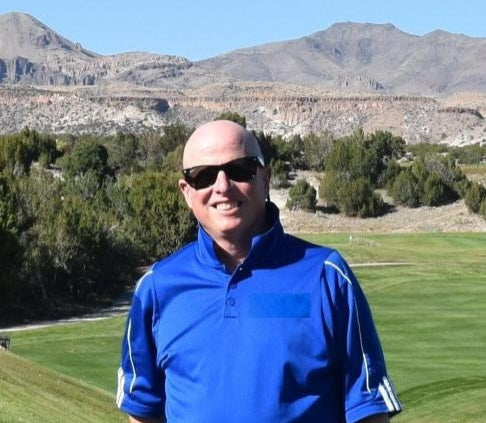
ABOUT THE AUTHOR
Born in Paterson, New Jersey, Dr. Mark Wagner is the fourth child of eight born to Jack and Pat (Coyle) Wagner. A decorated athlete and educator, Mark has published extensively on golf course architecture and history. In 2021, as he explored the history of Native-owned golf courses, Mark began to realize there were many firsts among our First Peoples in golf, a game he has loved since his childhood outings in the Adirondacks with his family.
The result is Native Links, a travelogue and oral history about and by the Indigenous people who have shaped and played the game. Mark lives with his partner Monica Elefterion on a small farm in Dudley, Massachusetts, where they raised their son Myles and fostered Cody and Jared.
MORE WRITING BY THE AUTHOR

A ‘Round with Legends’ at the Santa Ana Pueblo - ICT

